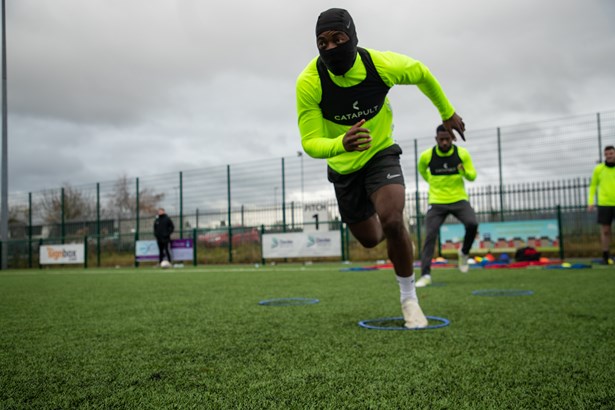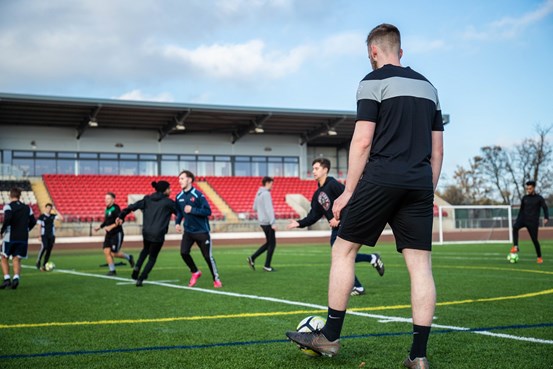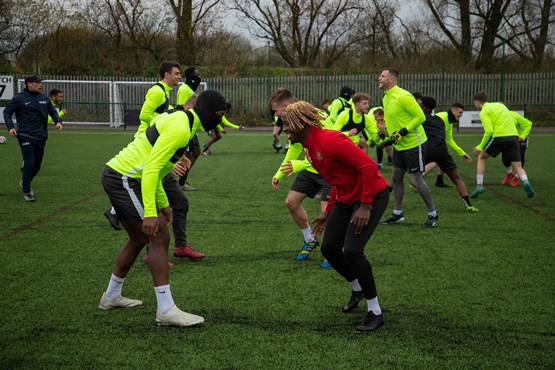A career in football coaching
Careers in football coaching are diverse, challenging and extremely rewarding, enabling you to stay closely involved in the game and understand it on an analytical level.
There are numerous pathways that can lead to a career in coaching but in order to increase your chances of succeeding within this competitive sector, a football coach degree will help provide a strong academic and theoretical background. Combining this with a multitude of experience will ensure you have a stand-out CV that proves you’re able to put the theory into practice.
The role of a football coach
A football coach is responsible for planning and leading coaching sessions across a range of ages and abilities, from community clubs for under-10s to Premier League players.
On top of providing the training plans, it’s also the role of a coach to analyse player performance and provide feedback outlining how they can improve their game. This is increasingly assessed through technological analysis, and while professional clubs tend to have separate statistical analysts, most coaches will also have the chance to get involved with these insights into the game.
There is also a responsibility for player welfare off the pitch, to ensure that they maintain a positive mental attitude which is necessary to fulfil their potential when playing. By building a rapport with individual players, they will likely respond more favourably to constructive criticism and take it on board in their game.
What qualifications do you need?

There are several different types of coaching qualifications required to excel within the coaching industry, beginning with FA Level 1 and FA Level 2. There are various levels of qualification, starting with those needed to learn the basics of coaching for use at amateur or grassroots level with children, to those required to coach professional Premier League footballers.
In order to demonstrate a holistic understanding of the sector, and combine theory with practice, it’s hugely advantageous to have a football coach degree alongside the preliminary qualifications.
These can allow you to hone your skills in a specific area, such as a Football Management degree, or a Football Coaching & Talent Development course. Online programmes also available that provide flexible schedules which can work around existing commitments.
How do you gain experience in the role?

Initially, it’s important to remain as open-minded as possible when seeking experience in football coaching. Whether it’s volunteering for a local grassroots team or physical education roles at schools, it will show that you’re eager to learn to future employers, as well as gaining the necessary skills and qualities required.
By reaching out to several organisations and clubs, you will also begin to build your network and secure valuable industry contacts. After having gained the experience at a basic level, and the necessary qualifications alongside this, you can then progress into paid roles in the EFL and beyond.
What jobs can I do as a qualified coach?

Once you’ve gained the necessary football coach qualifications, the most obvious pathway is to progress into the professional game, guiding elite players to meticulous adjustments and tactical advancements. There are several areas you can specialise in, if you wish, including sports psychology, talent identification or goalkeeper coaching.
On top of this, there are also options to work in the footballing pyramid, with many coaches favouring lower league clubs where they’re able to have a greater impact on and work more closely with the players.
There are also several options outside the EFL altogether, with the chance to work in non-professional academies, holiday camps or local schools.
Find out more about UCFB’s BA (Hons) Football Coaching & Management programme.


















